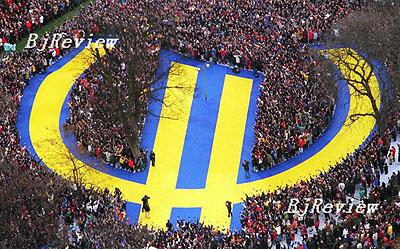
Germany is holding the European Union (EU) Council presidency during the first half of this year. There are two reasons that make the EU integration under a German presidency eye-catching.
The first is that the EU's development faces a dilemma--it can either go forward or backward--all depending on the hard and important choices the EU must make. In 2005, the draft of the EU Constitution, which is crucial to the EU's integration, was rejected in referendums first in France and then in the Netherlands. This seriously blocked the development of EU integration. After a year's reconsideration, the EU designed a "double track plan" in 2006, which was expected to rescue it from its dilemma.
On the one hand, the EU will restart the constitutional approval process, so as to boost EU structural reform, which has stagnated for a long time. On the other hand, the EU needs to let its people benefit more from new policies, so they in turn will support greater EU integration. Therefore, the core of Germany's strategy during its presidency should be to find ways that are acceptable to all EU members and to solve the constitutional problem.
The second issue is that the German presidency comes at the most difficult time for the EU: not only has there been no obvious progress on EU integration, but also there is no dominant country that can stand up to lead the union. Currently, Britain and France have their own domestic troubles, and British Prime Minister Tony Blair and French President Jacques Chirac, who are influential in EU affairs, will be leaving their posts and have few time or energy to push for EU integration.
Germany is the only big EU member that has a stable domestic political and economic situation. In addition, German Chancellor Angela Merkel is outstanding in diplomacy. Thus, Germany is the country to shoulder the historical mission of EU integration.
| 